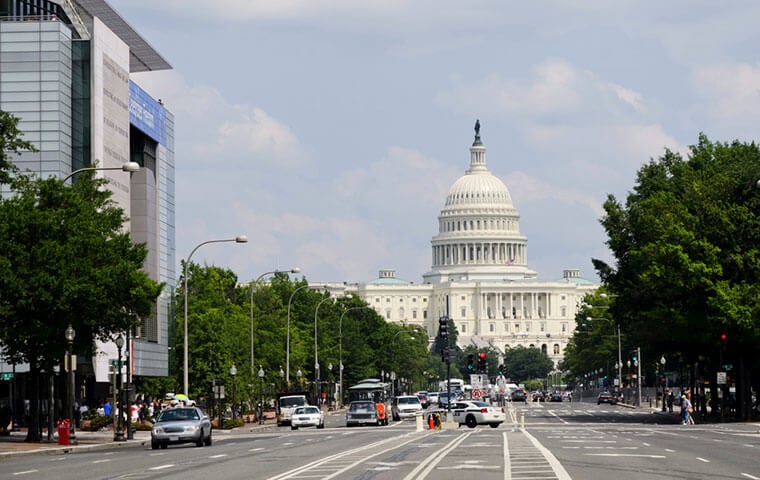 Federal pay, funding for DEI, and telework are on the agenda. Image: Konstantin L/Shutterstock.com
By: FEDweek Staff
Federal pay, funding for DEI, and telework are on the agenda. Image: Konstantin L/Shutterstock.com
By: FEDweek StaffCongress has returned from a two-week recess to face decisions on pay and other issues affecting federal employees to be made in the appropriations process for the new fiscal year starting October 1.
Working time already is growing short—Congress plans to recess again for all of August until the week after Labor Day—and the list of controversial topics has been growing fast as Republicans in the House, and Democrats in the Senate, have begun drafting those bills.
For federal employees, the most important measure once again will be the general government appropriations bill, where Congress traditionally either sets the federal raise for the following January or allows the White House proposal to take effect by default by taking no position. The version approved by a House subcommittee would take the latter course, but a proposal to set a figure—presumably lower than President Biden’s recommended 5.2 percent increase—could arise as the full Appropriations Committee takes up the bill, or possibly later in House floor voting.
That bill also contains a number of policy provisions including to roll back telework to pre-pandemic levels and require agencies to make a business case before increasing them again; deny funding for DEI initiatives in federal agencies; prohibit coverage of “gender-affirming care” in the FEHB program; and prohibit investing through the TSP’s mutual fund window in mutual funds using an “environmental, social and governance” investment philosophy, a ban the TSP has said would force it to drop that feature because it lacks the resources to monitor all of the available funds.
The Senate counterpart committee could start work on its own version soon and is not expected to include any of those provisions, setting up what could be contentious negotiations over them.
Also at issue are general agency funding levels, which in turn drive employment levels and funding available for training, travel and other workplace related costs. The House bills have been allotting less for agencies than was allowed under the law that suspended the federal debt ceiling until 2025. The general government bill would be especially restrictive, and includes another bid to claw back additional long-term funding for the IRS approved last year but already partly rescinded by the debt ceiling law.
Deep partisan disagreements over policy matters and funding levels already have raised concerns about a deadlock causing a partial government at the start of the new fiscal year. The debt ceiling law contains a provision for automatic continued funding if regular appropriations have not been enacted by the end of the calendar year, but that does not apply to the end of the fiscal year.
Senate Eyes Vote to Pay Federal Employees Working Unpaid
Series of Bills Offered to Address Shutdown’s Impact on Employees
Public Starting to Feel Impact of Shutdown, Survey Shows
OPM Details Coverage Changes, Plan Dropouts for FEHB/PSHB in 2026
Does My FEHB/PSHB Plan Stack Up? Here’s How to Tell
2025 TSP Rollercoaster and the G Fund Merry-go-Round
See also,
TSP Takes Step toward Upcoming In-Plan Roth Conversions
5 Steps to Protect Your Federal Job During the Shutdown
Over 30K TSP Accounts Have Crossed the Million Mark in 2025

